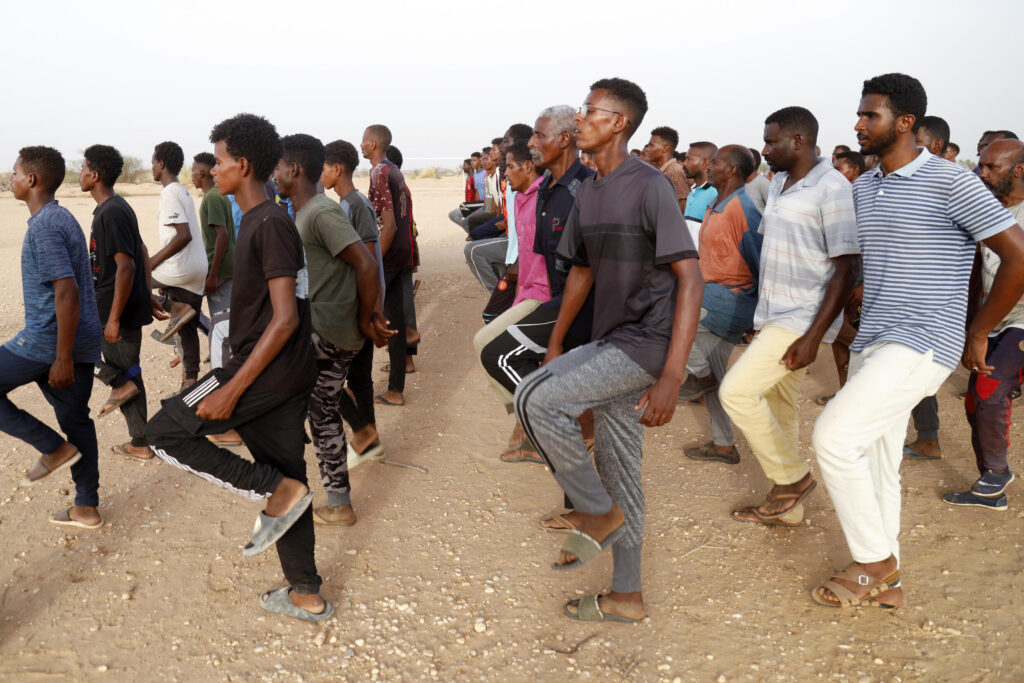
Although it was anticipating a quick and decisive victory at the start, 4 months later Sudan’s military concedes control of Khartoum to Rapid Support Forces. However, now RSF and the Sudanese army are locked in a bitter stalemate.
At the start of hostilities on April 15th, Sudan’s army commander Abdel Fattah al Burhan was confident that the conflict would conclude “within two weeks.”
His once-deputy, now adversary, Mohamed Hamdan Dagalo, has vowed that his Rapid Support Forces will attain “victory.”
However, both sides have struggled to secure a definitive upper hand, resulting in a conflict that has claimed the lives of at least 3,900 individuals, displaced over four million people, exacerbated food scarcities, and prompted accusations of war crimes.
Military expert Mohammed Abdelkarim says, the army “thought it knew the exact military capacity of the RSF.”
The RSF came to the realization that they might be engaged in a drawn out conflict and swiftly “took control of the entry points to Khartoum and fortified their supply routes,” disclosed a former military officer who spoke anonymously due to security concerns.
In July, the military declared the shutdown of the highway connecting Khartoum and Darfur, a stronghold of RSF. However, this move scarcely hindered the movement of their RSF personnel and weapons, as reported by residents and analysts.
Imposed sanctions by the United States and Britain on companies associated with both factions also appear to have had minimal impact on curbing the ongoing conflict.
As the armed forces struggle to maintain control over crucial Khartoum installations, they exert dominance over the skies, conducting frequent aerial bombardments on the capital.
But army lacks the RSF’s infantry power, which is crucial “given the urban nature of the war”, Abdelkarim said.
Sudan’s military has virtually relinquished control of the streets to the RSF.
Paradoxical Situation
“The army has for years neglected its infantry,” the former officer said, opting instead to outsource numerous conflicts — a paradoxical approach, considering it involved engaging the RSF, which had previously operated in the Darfur region and South Kordofan state.
For decades, Sudan’s army depended heavily on the Popular Defence Forces militia. In the Darfur region, where a rebellion originated in 2003, then-president Omar al-Bashir unleashed these paramilitary forces.
Their campaign led to war crimes charges against Bashir and others by the International Criminal Court.
The ousting of Bashir in 2019 marked the onset of a shift towards civilian governance, yet this trajectory was disrupted when Army chief Burhan, the nation’s de facto leader, orchestrated a coup in 2021.
Through its inability to control Khartoum, the army’s “claim to represent the government was in question”, said Sudan expert Alex de Waal.
According to the Sudan Conflict Observatory, which receives support from the United States, the RSF’s presence within civilian-inhabited neighborhoods and structures could be seen as “a potential violation of the Geneva Conventions”.
The army is facing allegations of abuse and misconduct, including a July 8 airstrike that resulted in the deaths of approximately twenty civilians.
Burhan The Lame Duck
Burhan retains “the political upper hand” but only “by default”, de Waal said.
De Waal said Burhan had “shown neither political profile nor leadership, and it is unclear if he can manage his cabal of quarrelsome lieutenants”.
What initially seemed like a clash between two generals has now escalated to the point where the United Nations has cautioned that it could escalate into a “full-scale civil war.”
From the military perspective, “this has paved the way for the Islamists due to their readiness, yet this approach could extend the conflict and add complexity to Sudan’s diplomatic ties,” explained the former officer.
The RSF has “has mobilised Arab tribes from Darfur in addition to our traditional forces” disclosed a source within the group, who requested anonymity due to lack of authorization to communicate with the media.
“Some fight to support their brothers,” the RSF source said, “while others fight for money”, a resource that seems to be in ample supply for Dagalo due to his alleged connections with the nation’s gold mines.
The United Arab Emirates stands as the primary purchaser of Sudanese gold and, as de Waal noted, there are indications that they may still be providing aid to RSF.
Supporting the military are Egypt’s President Abdel Fattah al-Sisi and his Turkish counterpart, Recep Tayyip Erdogan.
These allies, according to de Waal, “are talking peace even while they are arming their favoured clients”.
In July, Cairo hosted a summit of Sudan’s neighboring nations, which, according to the analyst, was aimed at countering IGAD, the East African bloc whose mediation efforts army’s Burhan criticized for being biased.
This introduces a diplomatic deadlock to the existing political standstill and military entanglement.
“It could last for years,” one Western diplomat warned, speaking on condition of anonymity because of the sensitivity of the matter.
